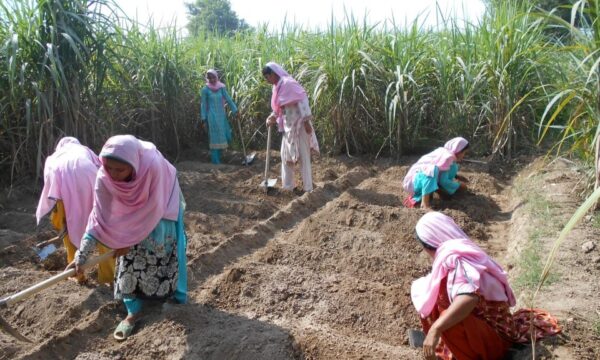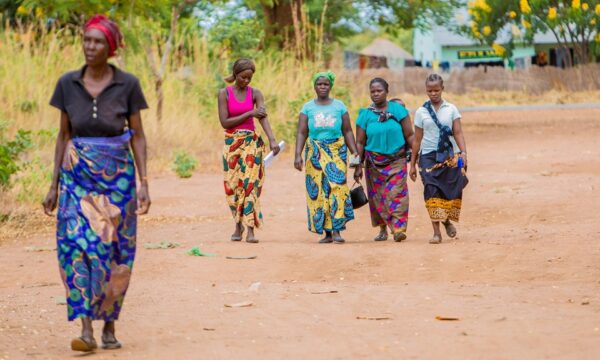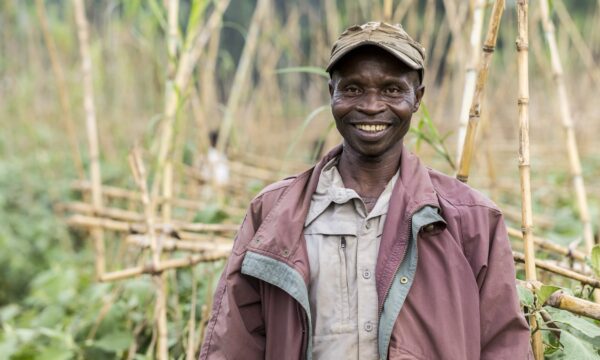
Globally, women represent 43% of the agricultural labour force but they have less access than men to credit, education, land ownership, high quality inputs, and rural advisory services. Agriculture can be a powerful pathway out of poverty but without fair access to these things, women aren’t always in a position to fully benefit.
Plantwise works in 34 countries around the world and in each, works hard to have a deep understanding of societal cultures in order to reach as many farmers as possible. Ensuring that our plant clinics are meeting the needs of rural communities is at the core of the Plantwise programme.
This gender responsive approach has seen the launch of female-only clinics in Pakistan’s Punjab province; two in 2017, three more in 2018, and a further three are planned by 2020. These clinics not only provide female farmers with plant health advice, but also serve to empower women in agricultural decision making, including over the use of productive resources, time, and income.
By adapting the traditional plant clinic method used in Pakistan since 2011 to fit the needs of women farmers means that the plant doctor not only addresses plant health problems but also takes time over practices carried out by women. For instance, after regular clinic activities, the plant doctor will demonstrate and advise on vegetable cultivation for kitchen gardens, a practice commonly undertaken by women. Indeed, the many practices traditionally carried out by women are given special focus at these clinics including: cotton picking, weed management, and crop harvesting.
With a special focus on women’s activities, these farmers are then also able to see the same benefits from plant clinics as male farmers – better crops and increased income.


“With the introduction of women-only clinics, we are seeing more women using plant clinic services in Pakistan,” says Malvika Chaudhary, Regional Coordinator for Plantwise Asia, “in particular empowering women in decision making and use of resources signals a positive change for rural women in the region.”
Last year, Dr Chaudhary met Noureen Anum, a plant doctor in the Punjab province of Pakistan. Anum not only hosts weekly plant clinics in her capacity as a plant doctor, she is also a Plantwise master trainer
“Training with Plantwise modules has certainly broadened my horizons in terms of learning and experience,” says Anum. She feels that as plant doctor she has more influence as a rural advisor and farmers recognise her in a defined role with specific purpose. “The farmers know to come with samples or even invite me to visit their fields.”
Plant doctors like Anum inspire other women and in her own district there are now 9 women trained with Plantwise as plant doctors or data managers. The value of women’s contribution to agriculture should not go underestimated. Including women throughout the plant health system only serves to enrich and strengthen Pakistan’s agricultural capacity.
In future more female-only plant clinics will be set up in Punjab province. And, in Khyber Pakhtunkhwa province, Plantwise is training more women to be master trainers and data managers.
Watch: Plantwise – Empowering female farmers
Read more:
2 Comments
Leave a Reply
Related News & Blogs
How plant clinics are strengthening crop health services in Bangladesh
When the first-ever plant clinic in Bangladesh opened in Dhaka in 2013, it initially faced a lack of interest due to its novelty and limited awareness among farmers. However, it went on to expand, providing advice to over 17,000 farmers and led to the…
2 July 2025





[…] Meeting the needs of women farmers in Pakistan […]
[…] Meeting the needs of women farmers in Pakistan […]